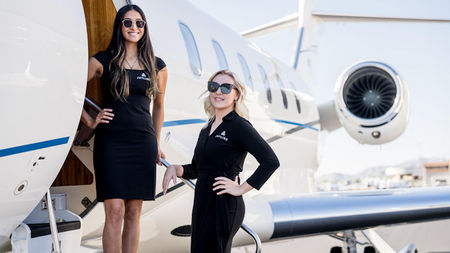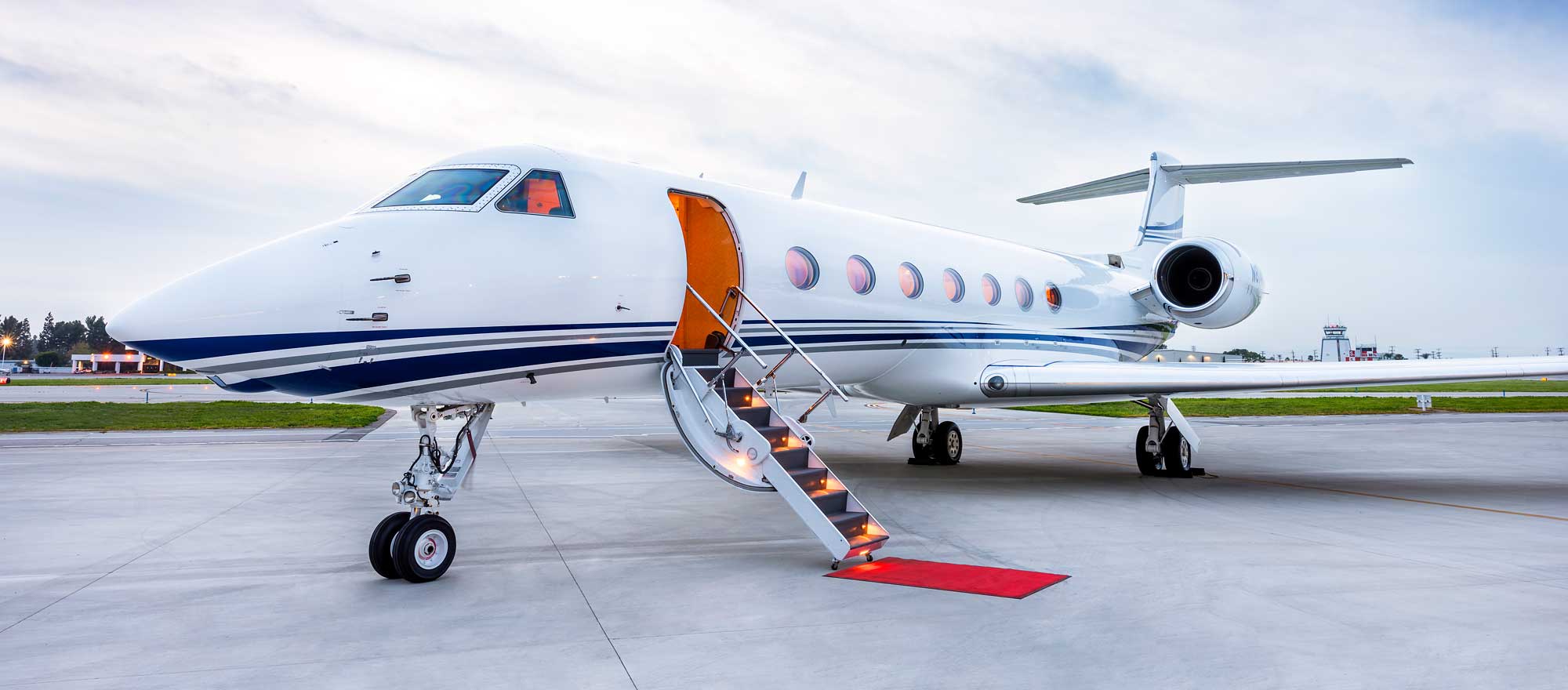Planning to fly internationally on a private jet from Las Vegas? Before you embark on your luxurious journey, it’s crucial to be aware of the necessary documentation and requirements to ensure a smooth and hassle-free experience. From passport validity to visas and customs declarations, this article will guide you through the essential paperwork needed for international private jet travel in Las Vegas. So sit back, relax, and let’s take a closer look at the legal aspects of jet-setting in style.

This image is property of images.unsplash.com.
Introduction
Planning to travel internationally by private jet from Las Vegas? Whether you’re a seasoned traveler or considering flying private for the first time, it’s important to have a clear understanding of the documentation and requirements involved. In this comprehensive guide, we’ll walk you through the necessary steps to ensure a smooth and hassle-free journey. From passport and visa requirements to immigration and customs procedures, security screenings, flight planning, health and safety considerations, baggage and cargo restrictions, and currency regulations, we’ve got you covered. So let’s dive in and discover everything you need to know before taking off on your international private jet adventure!
Passport and Visa
Valid and Up-to-Date Passport
First and foremost, it is crucial to have a valid and up-to-date passport when traveling internationally. Ensure that your passport doesn’t expire within six months of your intended departure date, as some countries have this requirement. If your passport is close to expiration, it’s best to renew it before your trip to avoid any potential issues.
Visa Requirements
Depending on your destination, you may also need a visa to enter the country. Visa requirements vary from one country to another, so it’s advisable to check with the embassy or consulate of your destination country well in advance. They will provide you with the most accurate and up-to-date information regarding visa application procedures, fees, and processing times. It’s important to note that visa processing can sometimes take several weeks, so plan accordingly and submit your application in a timely manner.

This image is property of images.unsplash.com.
Immigration and Customs
Arrival Procedures
Upon arriving at your destination, you will go through immigration procedures. This typically involves presenting your passport, visa (if required), and completing an arrival card provided by the immigration authorities. Make sure to accurately fill out the arrival card with all the necessary information, including your purpose of visit, duration of stay, and local address. It’s essential to answer all questions truthfully and provide any additional requested documents or information to immigration officers.
Departure Procedures
When it’s time to depart, you’ll go through departure procedures at the airport. This involves presenting your passport, any required visas or travel documents, and possibly completing a departure card. Allow ample time for these procedures to ensure a smooth departure process. It’s always advisable to arrive at the airport well in advance to avoid any last-minute stress.
Customs Declarations
Customs declarations are an important part of international travel. After passing through immigration, you’ll proceed to the customs area. Here, you’ll need to declare any goods, currency, or items of value that you are bringing into the country. Each country has specific rules and regulations regarding what must be declared, so it’s essential to familiarize yourself with the customs requirements of your destination. Failure to declare items or providing inaccurate information can result in fines or legal consequences.
Security
Security Screening
As with any air travel, security screening is a vital part of the journey. Prepare to go through standard security procedures, including the screening of your carry-on luggage, metal detectors, and body scanners. Remove any items that may trigger alarms, such as belts, jewelry, coins, or electronic devices, and place them in the provided trays for screening. Follow all instructions given by security personnel and be patient with the process, as it is designed to ensure the safety of all passengers and crew.
Carry-on Restrictions
While flying on a private jet may offer more flexibility than commercial flights, there are still restrictions when it comes to carry-on luggage. Familiarize yourself with the specific guidelines of your chosen private jet operator, as they may have their own rules regarding the number, size, and weight of carry-on items. Generally, liquids must be in containers of 3.4 ounces or less and placed in a clear, quart-sized bag. Additionally, sharp objects, firearms, and flammable materials are typically prohibited in cabin luggage.
Prohibited Items
Just like in commercial travel, there is a list of prohibited items that are not allowed on board private jets. These include explosives, dangerous chemicals, and other substances that pose a risk to the safety and security of the flight. Familiarize yourself with the specific list of prohibited items provided by your private jet operator to ensure compliance and avoid any potential issues during your journey.

This image is property of images.unsplash.com.
Flight Planning and Coordination
Flight Itinerary
When planning an international private jet trip, it’s essential to have a clear and detailed flight itinerary. This includes the departure and arrival airports, desired departure and arrival times, any planned fuel stops or layovers, and any other special requirements or requests. Work closely with your private jet operator or charter broker to create a customized itinerary that suits your needs and preferences.
Aircraft Selection
Choosing the right aircraft for your international trip is crucial for a comfortable and efficient journey. Consider factors such as the number of passengers, baggage capacity, range, and any specific amenities or features you require. Discuss your requirements with your private jet operator or charter broker, and they will assist you in selecting the most suitable aircraft for your needs.
Crew and Passengers Manifest
Before your flight, you’ll need to provide a manifest of all passengers and crew members traveling on the private jet. This includes full names, passport details, and any other required information. This manifest is essential for customs, immigration, and security purposes, as it allows authorities to verify the identities of everyone on board.
Clearances and Permits
Obtaining the necessary clearances and permits for international private jet travel is an important part of the planning process. Your private jet operator or charter broker will take care of these requirements on your behalf, ensuring compliance with all relevant aviation regulations, airspace restrictions, and customs and immigration protocols. They will handle the necessary paperwork and liaise with the appropriate authorities to obtain the required permissions for your flight.
Health and Safety
Vaccinations and Health Certificates
When traveling internationally, it’s essential to stay informed about any required vaccinations or health certificates. Some countries may have specific health regulations in place, particularly if you’re coming from or traveling through regions with infectious diseases. Check with your healthcare provider or a travel medicine clinic to ensure you’re up to date with all necessary vaccinations and have any required health certificates or documentation.
Medical Assistance
In case of a medical emergency during your international private jet travel, it’s important to be prepared. Consider purchasing travel insurance that includes medical coverage to ensure access to medical services if needed. Additionally, it’s advisable to have a basic first aid kit on board with essential supplies. If you have any specific medical conditions or require special assistance, inform your private jet operator or charter broker in advance, so they can make the necessary arrangements.
Emergency Services
Before your journey, familiarize yourself with the emergency services and contact information available at your destination. Keep important phone numbers and addresses handy, including local emergency services, your country’s embassy or consulate, and any other relevant contacts. This information will be valuable in case of any unforeseen circumstances or emergencies during your international travel.
Baggage and Cargo
Weight and Size Restrictions
Private jets have limitations on the weight and size of baggage and cargo that can be carried on board. These restrictions vary depending on the aircraft type and its specific configuration. Collaborate closely with your private jet operator or charter broker to determine the maximum allowable weight and dimensions for your luggage. It’s important to adhere to these guidelines to ensure a safe and comfortable flight.
Restricted and Prohibited Items
Similar to carry-on restrictions, there are certain items that may be restricted or prohibited from being transported on private jets. These include hazardous materials, firearms and ammunition, flammable substances, and other items that pose a safety or security risk. Familiarize yourself with the list of restricted and prohibited items provided by your private jet operator to avoid any issues or delays during the baggage screening process.
Currency Regulations
Declaration of Cash
When traveling internationally, it’s important to comply with currency regulations. Many countries have strict rules regarding the amount of cash that can be brought into or taken out of the country. If you’re carrying a significant amount of cash, it’s advisable to declare it to customs authorities upon arrival or departure, depending on local regulations. Failure to declare large sums of cash can result in fines or confiscation of the funds.
Currency Exchange
Before embarking on your international private jet journey, consider exchanging some currency to have on hand at your destination. While major airports typically have currency exchange facilities, it’s advisable to have some local currency with you for immediate expenses upon arrival. Research the current exchange rates and check for any fees or charges associated with currency exchange to ensure you’re getting the best value for your money.
Currency Restrictions
In addition to cash declaration, some countries may have restrictions on the amount of local currency that can be brought in or taken out. Familiarize yourself with these regulations before your trip to avoid any issues. It’s also worth noting that some countries have limitations on the amount of foreign currency that can be exchanged or withdrawn locally, so plan accordingly to ensure you have sufficient funds during your stay.
Conclusion
Traveling internationally by private jet from Las Vegas offers a luxurious and efficient way to explore the world. By understanding and adhering to the necessary documentation and requirements, you can ensure a seamless and enjoyable journey. From valid passports and necessary visas to immigration and customs procedures, security screenings, flight planning, and health and safety considerations, each step plays a vital role in ensuring a successful international private jet trip. So, whether you’re a frequent flyer or considering private jet travel for the first time, make sure to follow these guidelines and enjoy the convenience and comfort of flying on your own terms. Safe travels!



